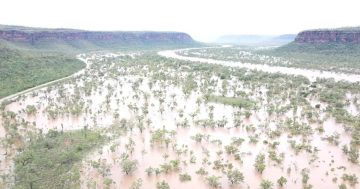Emilia Terzon* says furious small business owners are vowing to “fight to the end” against Australian insurance companies, in an increasingly heated battle over pandemic payouts that is likely to drag on for years.
 There are now at least five legal firms investigating potential class action lawsuits against the insurance industry over its denial of business interruption (BI) policy payouts during the pandemic.
There are now at least five legal firms investigating potential class action lawsuits against the insurance industry over its denial of business interruption (BI) policy payouts during the pandemic.
But litigation lawyers will not have an easy time of it, with the insurance sector vigorously defending paying out a liability that is estimated to be up to $10 billion.
“It’s going to be a fight to the end,” Australian small business owner Michael Herrmann said.
Mr Herrmann owns a bicycle tour company in Sydney that has seen revenue drop 95 per cent since the pandemic started.
He said this revenue loss is due to a combination of hard business lockdowns and the loss of international tourists as Australia’s borders remain closed.
When COVID hit, Mr Herrmann’s business Bonza Bike Tours had a business interruption policy with CGU, a subsidiary of Australia’s biggest insurance company, IAG.
Business interruption policies were designed to financially bail out companies when they experience a major disruption to trade, like a fire or a natural disaster.
Despite making a claim and involving the financial complaints regulator AFCA, Mr Herrmann has so far been unable to receive a payout under his BI policy for his revenue loss during the pandemic.
“Every time I’ve made a claim, they’ve waited to the last possible day to respond,” he said.
IAG did not comment on the specifics of this case.
But in a statement, a spokesperson for the insurance giant reiterated a statement that the entire industry is standing firm on.
“Our policies weren’t written or designed to provide cover for a pandemic, so we need clarification on how they should be interpreted in light of the impact of COVID-19,” an IAG spokesperson said.
On what legal basis don’t the policies cover pandemics?
That is the question at the heart of this debate.
Last year, the industry’s lobby group, the Insurance Council of Australia, took a test case to the NSW Court of Appeal.
The insurance industry paid the legal costs of two small Australian businesses, a Tamworth caravan park and a Melbourne health food shop, at the centre of the test case.
But the insurance industry lost the case.
The unanimous ruling by five judges hinged on just a few words.
Many of the BI policies held by small business owners state they do not cover revenue losses due to “diseases declared to be quarantinable under the Quarantine Act 1908 (Cth) and subsequent amendments”.
But the Quarantine Act was repealed by the Commonwealth in 2016 and replaced by another set of laws, the Biosecurity Act 2015 (Cth).
COVID-19 was declared as a quarantinable disease under the Biosecurity Act in January 2020.
But it was never declared as such under the old act, because it was repealed years before COVID-19 arose as a pandemic.
This is what the judges pointed out in their ruling.
“The expression ‘and subsequent amendments’ is not ambiguous and only describes amendments to the Quarantine Act,” they judged.
“To suggest that the words ‘and subsequent amendments’ include the enactment of the Biosecurity Act is many steps too far.”
Fine print debacle is ‘an absolute stuff up’
Investor Claim Partner (ICP) litigation funder John Walker describes the debacle over the Quarantine Act wording as “an absolute stuff up” by the insurance industry.
“If they did not intend to cover pandemics, then to a certain extent I feel sorry for them, but that does not alleviate their legal obligations to the insured,” Mr Walker said.
“It is seen by the insurance industry as a stuff up and they’re wanting the insured to pay for their stuff up.”
He is currently asking business owners with BI coverage to come forward and have their claims assessed, with the long-term view that a class action may be lodged, if the insurance industry does not settle out of court.
“It’s been 12 months since this pandemic started. There’s been negligible claims paid. It ought to change,” Mr Walker said.
But if the industry does start paying out more policies, the cost to it and investors could be astronomical.
In an affidavit filed in court, the ICA estimated that roughly 250,000 small business owners have BI policies that could be impacted by legal actions, and the total sum of potential payouts covered by them is around $10 billion.
IAG told the ASX this month that it has so far set aside $1.15 billion in pre-tax earnings as a provision for business interruption claim payouts.
The ICA’s executive director Andrew Hall said money for these payouts had simply not been accounted for previously.
“Generally, pandemics have not been covered by BI insurance policies and the reason being is they’re simply too large for a BI policy to cover,” he said.
“Unfortunately pandemics are a risk that’s very difficult to price for. They’re very expensive and could shut down the entire country at once.
“The premiums have not been collected. There has not been a pool built for them.”
Further court cases coming
The ICA is now trying to challenge the NSW Court of Appeal decision on the Quarantine Act ruling. If an appeal is actually granted, a final outcome on that could take months or longer.
It is not guaranteed that insurers will start paying out claims if the industry loses that appeal.
In a response to Mr Herrmann’s claim via AFCA, insurance company CGU indicated as much.
“Even if that appeal process results in the QA Exclusion being finally determined not to be effective, CGU’s position is that cover under the complainant’s policy does not extend,” it said.
The ICA’s Andrew Hall said further test cases are in the pipeline to look at other contractual areas that the industry believes could preclude it from paying out pandemic claims.
“There will be a number of cases in the second round, which that will differ from the first claim. At the moment we’ve submitted around a dozen possible claims to AFCA,” he said.
Possible areas to be tested are whether a business needed an actual outbreak of COVID-19 in “proximity” to it or whether general economic downturn during the pandemic is enough to claim direct cause.
“We know those questions need to be tested in front of a court,” Mr Hall said.
“It’s our intention to resolve this as quickly as possible.”
Issue could drag on for years
A lawyer at another legal firm considering a class action, Maurice Blackburn, said he expected the issue to drag on.
“By spreading their liability over months and years, then [the insurers] mitigate the impact on claims payouts and capital reserves,” lawyer Josh Mennen said.
“All the while businesses facing existential crisis are left in limbo wondering if their insurer will ever respond.”
Bonza Bike Tour’s Mr Herrmann said he was resigned to keep fighting.
“I can see the hurdles being put down in front of us and it’s going to take years,” he said.
He is unsure about joining any of the class actions now being floated by ICP, Maurice Blackburn, Slater & Gordon, Gordon Legal and Shine.
Just like legal battles over contract law, class actions could also drag on.
“I really need to research the results of class actions. The legal teams make all the money,” he said.
As he weighs up his options, Mr Herrmann wants the Federal Government to intervene and somehow force the insurance industry to negotiate, so he is not waiting years for a potential payout.
The Treasurer’s office did not respond to this call for intervention or confirm if it is even possible.
*Emilia Terzon is a business reporter with the ABC.
This article first appeared at abc.net.au.











